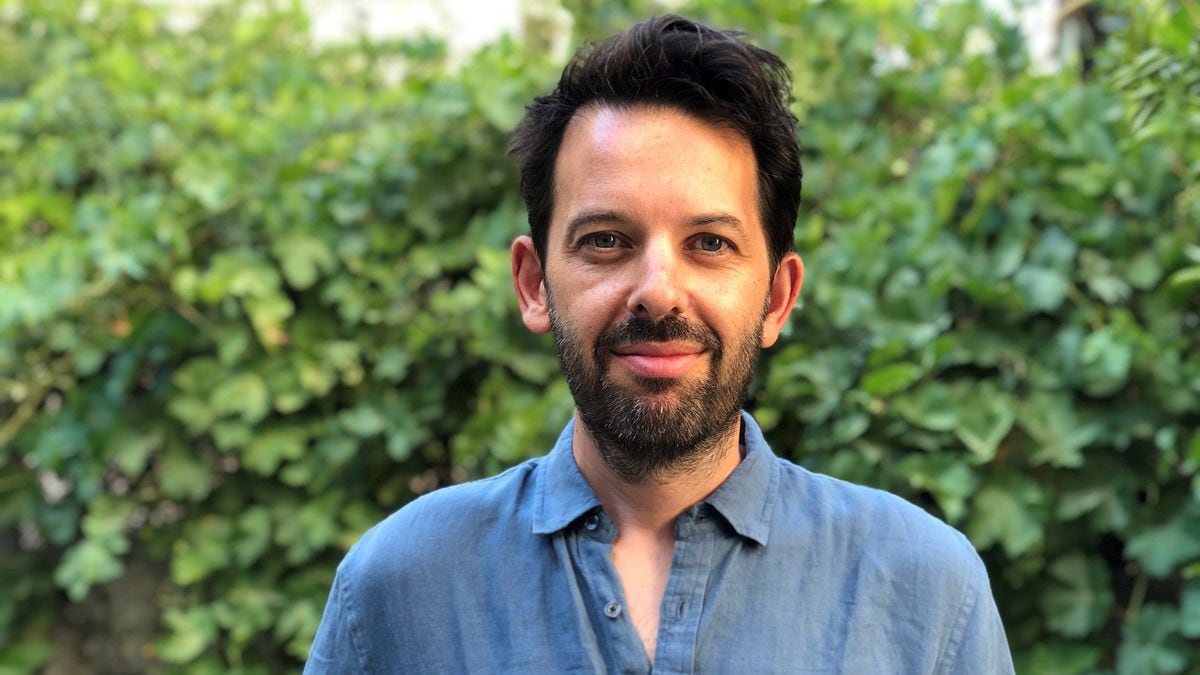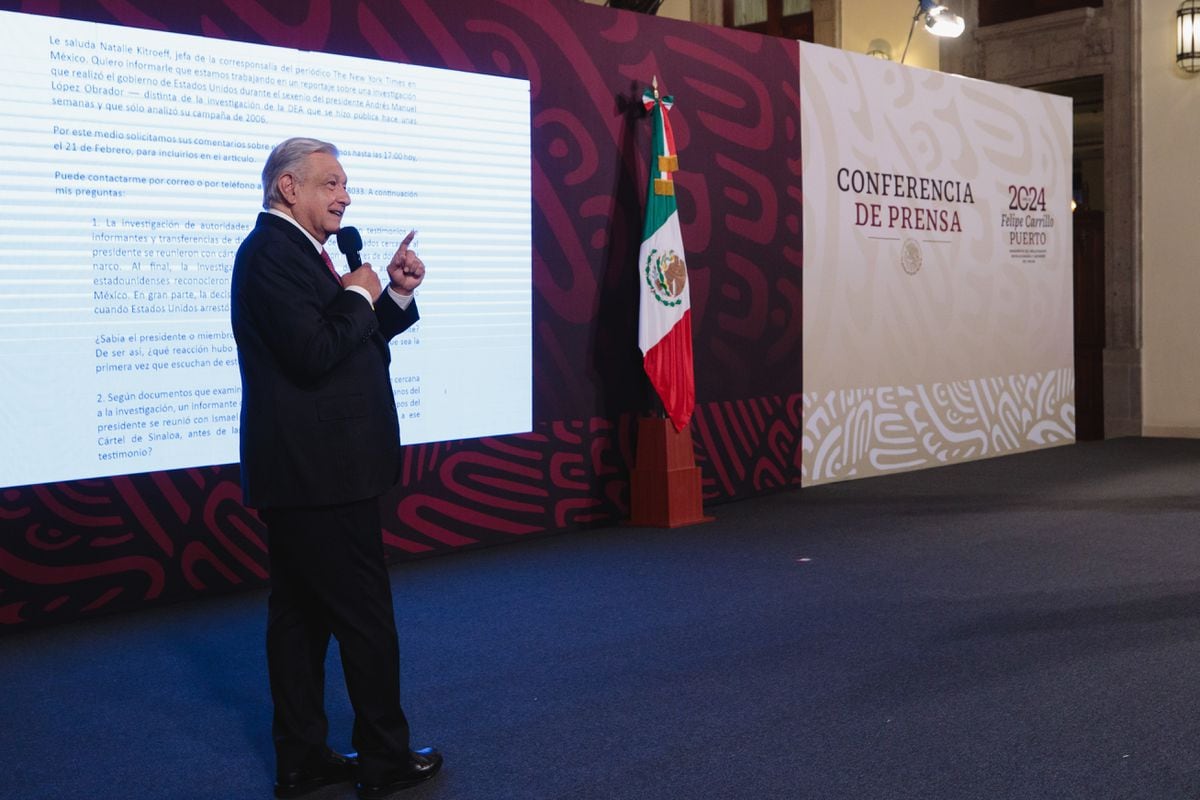- Click to share on Facebook (Opens in a new window)
- Click to share on Twitter (Opens in a new window)
- Click here to share on LinkedIn (Opens in a new window)
- Click to email a friend (Opens in a new window)
(CNN) - The denunciation of an informant on the telephone call of the US president, Donald Trump, with the president of Ukraine, Volodymyr Zelensky, provoked an investigation against the US president promoted by the House of Representatives of Democratic majority.
In his complaint the informant, who until now has not been identified, says that the president was using his power to "request interference from a foreign country" in the elections.
Trump, who has defended himself against the accusations against him, has said that the Democrats are trying to destroy the Republican Party.
The case of this informant who denounced Trump recalls other iconic cases of filters and informants in the history of the United States. These are the best known:
Edward Snowden and the NSA
Former National Security Agency (NSA) contractor Edward Snowden revealed himself as the person who leaked documents describing a massive effort by the NSA to track cell phone calls and monitor email and Internet traffic from virtually all Americans. Snowden said he just wanted the public to know what the government was doing.
"Even if you're not doing anything wrong, you're being watched and recorded," he said.
Snowden was granted temporary asylum in Russia - which was renovated until 2020 - after initially fleeing to Hong Kong. He was charged with three counts of serious crimes, including violations of the US Espionage Act, for leaks.
Chelsea Manning and WikiLeaks
Bradley (Chelsea) Manning is escorted on July 30, 2013 by military police to leave the military trial in which he was found guilty in 20 of 21 charges following the leak of information to WikiLeaks. (Credit: Mark Wilson / Getty Images)
Navy soldier Bradley Manning (who later changed sex identifying himself as Chelsea) was sentenced on July 30, 2013 for stealing and filtering 750,000 pages of classified documents and videos to WikiLeaks, in what has been described as the largest escape from classified material in the history of the United States. The charges against him included violations of the Espionage Law. He was convicted in 20 of the 22 charges but acquitted of the most serious charge: helping the enemy.
The material, which WikiLeaks published in 2010, included the classified video of a US helicopter attacking civilians and journalists in Iraq in 2007. Listed as "Collateral Murder," the video sparked criticism from human rights activists for the death of innocent
He was sentenced to 35 years in prison and a month after his conviction said he wanted a sex change and in 2014 a judge approved his request to be formally known as Chelsea Elizabeth Manning. In January 2017, President Barack Obama commuted the sentence of Chelsea Manning.
Daniel Ellsberg and the Pentagon documents
(Credit: Hulton Archive / Getty Images)
Military analyst Daniel Ellsberg leaked 7,000 pages of Pentagon documents in 1971. Highly confidential documents revealed that top American leaders, including three presidents, knew that the Vietnam War was a war that was impossible to win.
In addition, they showed that the Government had lied to Congress and the public about the progress of the war. Ellsberg turned himself in to the authorities and was accused of spying. During his trial, the court learned that the administration of President Richard Nixon had embarked on a campaign to discredit Ellsberg, listening to him illegally and breaking into his psychiatrist's office. All charges against him were dropped. Since then he has lived a relatively quiet life as a respected author and teacher.
Peter Buxtun and syphilis
(CDC / National Archives)
As of 1932, the US Public Health Service. UU. He studied untreated syphilis in black men who thought they were receiving free medical care. Patients were not informed of their condition or treated sufficiently. Peter Buxtun, who worked for the Public Health Service, transmitted information about the Tuskegee syphilis experiment to a journalist in 1972, who retained the 40-year study.
His testimony at the congressional hearings led to a review of health, education and welfare standards related to work with human subjects. A class action lawsuit was settled out of court for $ 10 million and the United States government promised free medical care to survivors and their families. In this photo, participants speak with a study coordinator.
Mark Felt, 'Deep Throat'
(CBS / Landov)
In 2005, retired FBI deputy director Mark Felt revealed himself as the "Deep Throat" whistleblower of the Watergate scandal. He anonymously helped The Washington Post reporters Carl Bernstein and Bob Woodward with many of their stories about the cover-up of President Richard Nixon's government after the June 1972 robbery at the headquarters of the National Democratic Committee.
The stories unleashed a congressional investigation that eventually led to Nixon's resignation in 1974. The Washington Post won a Pulitzer Prize for its coverage. Felt was convicted of unrelated conspiracy charges in 1980 and was eventually forgiven by President Ronald Reagan before living a life out of the public eye for 25 years. He died in 2008 at age 95.
Mehdi Hashemi: Iran and the Nicaraguan counter
(DON RYPKA / AFP / Getty Images / File)
President Ronald Reagan addresses the media in 1987, months after the Iran-Contra issue was disclosed. A secret operation carried out by a US military official used the proceeds of arms sales to Iran to finance the anti-communist cons in Nicaragua and attempted to secure the release of US hostages held by Hezbollah backed by Iran in Lebanon.
Mehdi Hashemi, an agent of the Iranian Revolutionary Guard Corps, leaked evidence of the agreement to a Lebanese newspaper in 1986. Reagan's closest assistants argued that he did not know completely, and only reluctantly came to accept the circumstances of the operation. (DON RYPKA / AFP / Getty Images / File)
Jeffrey Wigand and the tobacco industry
(Craig F. Walker / The Denver Post via Getty Images)
Tobacco industry executive Jeffrey Wigand issued a memo to his company in 1992 about his concerns regarding tobacco additives. He was fired in March 1993 and was subsequently contacted by "60 Minutes", who persuaded him to tell his story on CBS.
Wingand claimed that Brown and Williamson used additives knowing they were carcinogenic and addictive and spent millions to cover it up. He also testified in a historical case in Mississippi that resulted in an agreement in which the tobacco industry paid $ 246 billion. Wigand has received public recognition for his actions and continues his crusade against Big Tobacco. It was played by Russell Crowe in the 1999 film "The Insider." (Craig F. Walker / The Denver Post through Getty Images)
Frederic Whitehurst vs. the FBI
For 10 years, Frederic Whitehurst complained in vain about practices in the world-renowned criminal laboratory of the FBI, where he worked. Their efforts eventually led to a 1997 investigation that found that laboratory agents produced inaccurate and scientifically flawed testimonies in important cases, including the Oklahoma City attacks and the World Trade Center.
The Justice Department recommended major reforms, but also criticized Whitehurst for "exaggerated and incendiary" accusations. He also faced disciplinary measures for refusing to cooperate with an investigation into how some of his accusations leaked into a magazine. After a one-year pay suspension, he left the office in 1998 with an agreement worth more than $ 1,160 million. (Chip Somodevilla / Getty Images)
Coleen Rowley and the 9/11 attacks
(Mark Wilson / Getty Images)
FBI whistleblower Coleen Rowley accused the FBI of hindering efforts to investigate a terrorist suspect who could have disrupted plans for the terrorist attacks of September 11, 2001.
In 2002, Rowley sent a 13-page letter to FBI director Robert Mueller and traveled to Washington to hand deliver copies to two members of the Senate Intelligence Commission and meet with the staff of that commission. The letter accused the office of deliberately undermining requests to investigate Zacarias Moussaoui, the only person convicted in the United States for participating in the attacks.
She testified in front of Congress and the September 11 Commission about the mishandling of information by the FBI. Rowley was selected as one of the People of the Year from Time magazine in 2002, along with whistleblowers Sherron Watkins of Enron and Cynthia Cooper of WorldCom. (MIKE THEILER / AFP / Getty Images / File)
Sherron Watkins and Enron
(Mark Wilson / Getty Images)
Sherron Watkins, Enron's former vice president, sent an anonymous letter to founder Kenneth Lay in 2001 warning him that the company had accounting irregularities. The memo finally reached the public and then testified before Congress about their concerns and the company's mistakes.
More than 4,000 Enron employees lost their jobs, and many also lost their lifelong savings, when the energy giant declared bankruptcy in 2001. Investors lost billions of dollars. An investigation in 2002 found that Enron executives reaped millions of dollars out of accounting books and violated the basic rules of accounting and ethics. Many were sentenced to prison for their role in the Enron scandal. (Bill Pugliano / Getty Images / File)
Cynthia Cooper and WorldCom
(Willey)
Cynthia Cooper and her team of auditors discovered a massive fraud in WorldCom in 2002.
They discovered that the long-distance telephone provider had used $ 3.8 billion in questionable accounting entries to inflate profits in the last five quarters. At the end of 2003, total fraud was estimated at $ 11 billion. The company declared bankruptcy and five executives ended up in prison. Cooper started his own consulting firm and told his story in the book "Extraordinary circumstances: the journey of a corporate informant." (Wiley)
Robert MacLean and the TSA
(Tim Boyle / Getty Images)
In 2003, federal air marshal Robert MacLean anonymously informed an MSNBC reporter that due to budgetary concerns, the TSA had temporarily suspended missions that would require sheriffs to stay in hotels only a few days after receiving information about a new "Possible plot" to hijack American planes.
The news caused an immediate uproar in the capitol and the TSA changed its mind, removing programming cuts before they went into effect. Later, MacLean was investigated and dismissed for the unauthorized disclosure of "confidential security information."
Joe Darby and Abu Ghraib
Joe Darby is the whistleblower behind the abuse scandal of Abu Ghraib prison in Iraq. He says he asked the Navy Reserve Specialist Charles Graner Jr. for photos of his trips so he can share them with the family. In return, he received photos showing the abuse of the prisoners.
Darby finally alerted the US military command by unleashing a worldwide investigation and outrage when the scandal came to light in 2004. Graner was sentenced to 10 years in prison for his involvement in the abuse. He was released in 2011 after serving six and a half years of his sentence. The military and members of Darby's own family excluded him, calling him a traitor. Finally, he and his wife had to enter a protection program.
Russ Tice and the Bush surveillance program
(Chip Somodevilla / Getty Images).
The New York Times reported in 2005 that in the months following the attacks of September 11, 2001, President George W. Bush authorized the National Security Agency to spy on people across the country without a court order, including US citizens suspected of communicating with al Qaeda members abroad.
The Bush administration strongly defended the controversial surveillance program. Russ Tice, an NSA expert, introduced himself as one of the anonymous sources used by The New York Times. He said he was concerned about the alleged abuses and lack of supervision.
Informants









